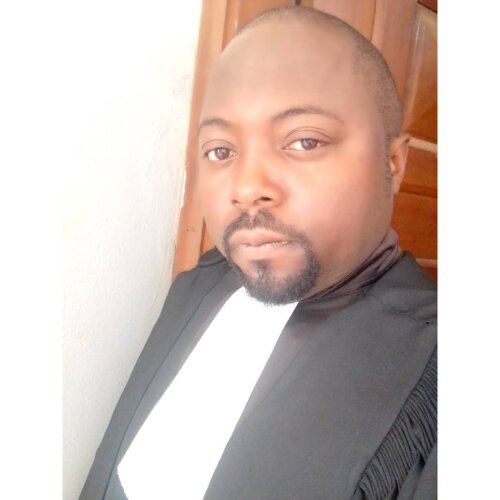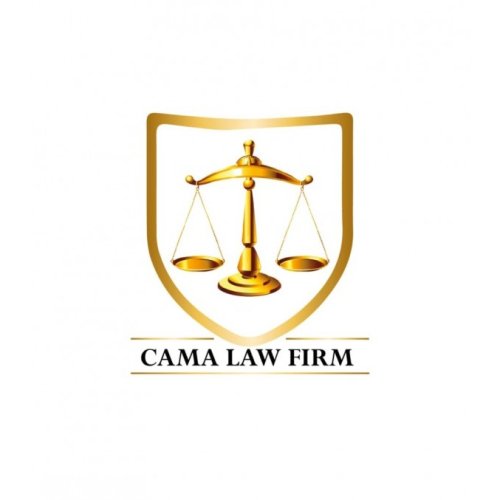Best Faith-Based Law Lawyers in Douala
Share your needs with us, get contacted by law firms.
Free. Takes 2 min.
List of the best lawyers in Douala, Cameroon
About Faith-Based Law in Douala, Cameroon
Faith-based law in Douala, Cameroon, refers to legal principles and practices that are influenced by religious beliefs and doctrines. This legal framework can encompass a variety of religions, each bringing its own set of beliefs that may impact legal proceedings. In Douala, like throughout Cameroon, faith is an integral part of daily life, and religious beliefs often intersect with secular laws. Therefore, understanding how these intersections occur is crucial, particularly when dealing with personal matters such as marriage, divorce, inheritance, and others that may be influenced by faith-based considerations.
Why You May Need a Lawyer
There are several situations where you might require legal help in faith-based law. These include:
- Marriage and Divorce: When you need to understand how religious doctrines might impact legal contracts in marriage or divorce.
- Inheritance and Wills: To navigate the complex intersections between religious guidelines and statutory inheritance laws.
- Dispute Resolution: In cases where religious customs may offer guidance or alternative resolutions to conflicts.
- Child Custody: Understanding how faith-based considerations might affect custody arrangements.
- Business and Contracts: When business dealings or contractual obligations involve parties who wish to adhere to religious principles.
Local Laws Overview
In Douala, faith-based laws are recognized within the broader framework of Cameroon's legal system, which is a mix of English common law, French civil law, and customary law. Key aspects include:
- Customary Law: This recognizes the validity of certain religious practices and decisions, especially in personal law matters.
- Secular Laws: These laws exist alongside religious codes and are often applied in public and legal affairs.
- Religious Autonomy: Religious groups may have their own internal regulation mechanisms, particularly in community matters.
Frequently Asked Questions
How does faith-based law influence marriage and divorce proceedings in Douala?
Faith-based laws can dictate certain conditions in marriages, such as dowries and ceremonial rites, and can affect divorce proceedings, particularly regarding grounds for divorce and reconciliation efforts.
Can religious courts issue binding decisions?
This depends on the recognition of these courts within the statutory legal framework. Often, their decisions are respected within the community but may need alignment with national laws for legal enforceability.
What role does customary law play in faith-based legal matters?
Customary law often integrates religious practices into legal proceedings, especially in personal law matters like inheritance, where traditions and beliefs play significant roles.
Are religious marriages recognized under Cameroonian law?
Yes, religious marriages can be recognized, provided they are duly registered with civil authorities to have legal standing.
How does faith impact inheritance laws?
Faith-based traditions may stipulate specific inheritance rules that could differ from statutory laws, requiring legal advice to reconcile these differences.
What happens if there is a conflict between statutory and religious laws?
When conflicts arise, statutory laws typically prevail; however, professional legal counsel can help navigate these conflicts to reach an amicable solution.
Can I draft a will according to my religious beliefs?
Yes, you can. Though it must comply with statutory requirements to ensure its legality, it can reflect your faith-based intentions.
Does faith-based law affect commercial contracts?
While generally governed by secular law, commercial contracts can include clauses that respect the parties' faith-related stipulations.
How can religious beliefs affect child custody decisions?
Such beliefs might influence custody arrangements by prioritizing the child’s welfare aligned with religious upbringing unless contrary to the best interests of the child as defined by statutory law.
What if my faith group has its internal dispute resolution system?
If recognized, these systems can provide supplementary support, though legal advice may be needed to ensure outcomes are aligned with national law.
Additional Resources
Several governmental and non-governmental organizations can provide guidance on faith-based legal issues:
- Ministry of Justice: Provides information on the legal system and access to legal texts.
- Local Bar Associations: Offer referrals to experienced lawyers in faith-based law.
- Religious Organizations: Many provide legal advice or services related to specific faith-based legal matters.
Next Steps
If you require legal assistance in faith-based law, consider the following steps:
- Consult a Qualified Lawyer: Look for a lawyer with experience in both local and faith-based law.
- Gather Relevant Documents: Compile any existing legal documents and notes related to your case.
- Research Legal Options: Familiarize yourself with both statutory and religious legal principles pertinent to your situation.
- Contact Legal Aid Services: Reach out to available legal aid services for initial guidance and support.
Lawzana helps you find the best lawyers and law firms in Douala through a curated and pre-screened list of qualified legal professionals. Our platform offers rankings and detailed profiles of attorneys and law firms, allowing you to compare based on practice areas, including Faith-Based Law, experience, and client feedback.
Each profile includes a description of the firm's areas of practice, client reviews, team members and partners, year of establishment, spoken languages, office locations, contact information, social media presence, and any published articles or resources. Most firms on our platform speak English and are experienced in both local and international legal matters.
Get a quote from top-rated law firms in Douala, Cameroon — quickly, securely, and without unnecessary hassle.
Disclaimer:
The information provided on this page is for general informational purposes only and does not constitute legal advice. While we strive to ensure the accuracy and relevance of the content, legal information may change over time, and interpretations of the law can vary. You should always consult with a qualified legal professional for advice specific to your situation.
We disclaim all liability for actions taken or not taken based on the content of this page. If you believe any information is incorrect or outdated, please contact us, and we will review and update it where appropriate.









